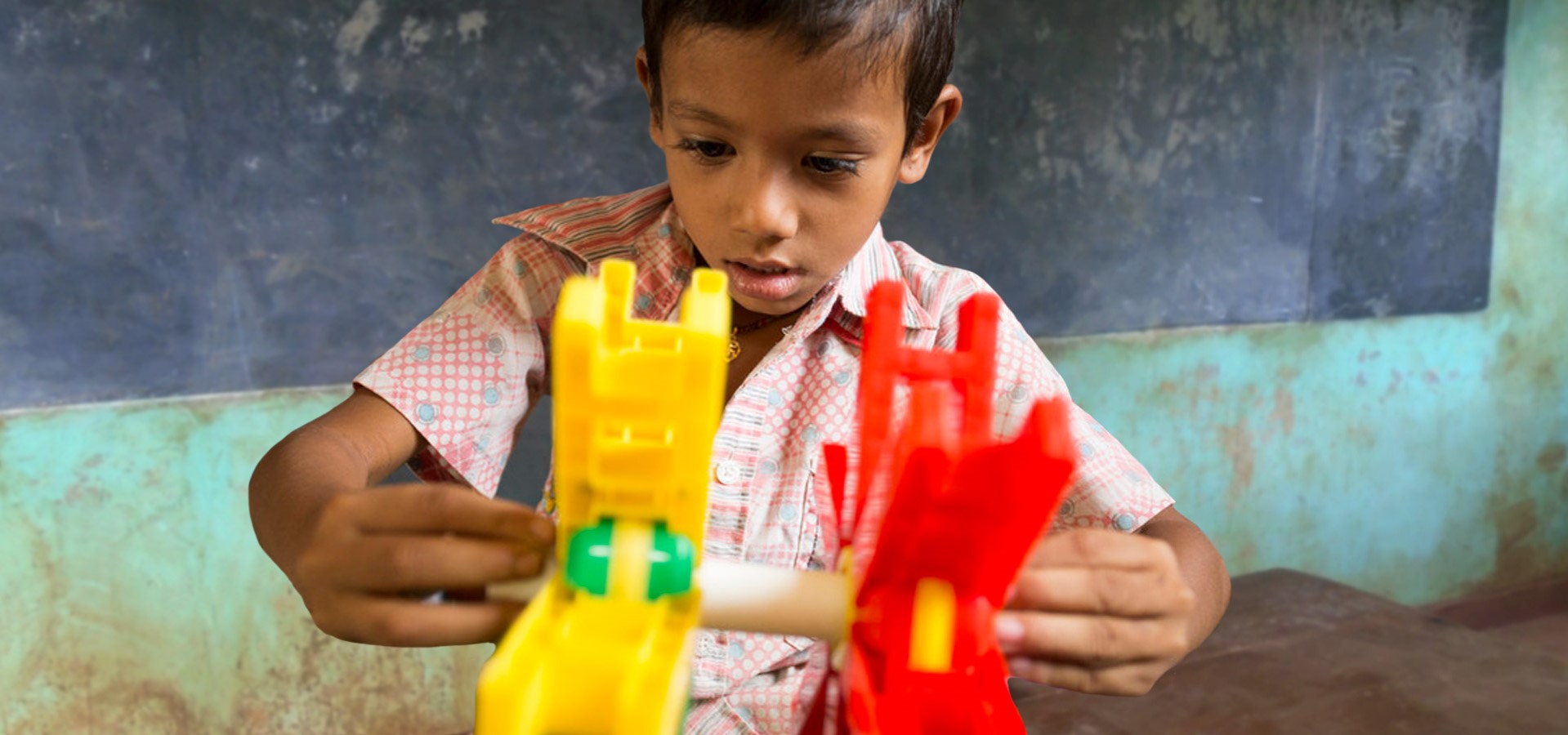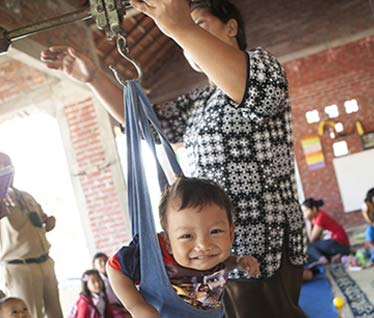Site will be
unavailable for maintenance from June. 4, 11:30 p.m., to June 5, 12:30 a.m. ET. Thank you for your
patience!
Early Childhood Development


Even before birth, brain development speeds along at a breakneck pace, with millions of neural connections happening by the minute. Bones grow, muscles strengthen, motor control increases, language blossoms, and a child’s first relationships form.
All of this groundwork for everything that follows — starting and staying in school, growing into young adulthood and entering the workforce, becoming parents, and making a positive mark on the world.
That is, if.
Only if that life has begun with certain conditions present.
Safety. A loving, responsive caregiver. Learning opportunities and stimulation. Access to nutrition and health care.
The Challenge
For any child, the conditions present (or absent) in the early years have long-term effects on his or her development. In fact, many issues facing adults in impoverished communities trace back to those early childhood years.

In households affected by extreme poverty or HIV, when caregivers face difficulties providing for the needs of the children in their care, let alone their own needs, frustration can lead them to cope in unhealthy ways — through abuse or neglect, or even by placing their children into exploitative situations.
When young children live under those conditions over time, they suffer long-term consequences to their learning, behavior and both physical and mental health, including lower test scores in adolescence and greater risk of heart disease in adulthood.

15-month-old Bintang is weighed at an ECD center in Wonigiri, Indonesia.
Our Approach
At ChildFund, the goals of our Early Childhood Development programs are to help the youngest children develop at their potential, enjoy good physical and mental health, live in supportive communities and be part of stable households that interact in nonviolent ways.
Thus, prevention of violence and exploitation is a strong focus in our work with children of this age, combining home- and center-based interventions aimed at strengthening caregiver-child relationships as well as families’ economic security. In doing so, we promote conditions where love flourishes rather than desperation.
- We support parents and caregivers to develop the skills and resources they need to be responsive to both their own needs and the needs of the children in their care. Parenting education helps build on what parents already know and do and increases their knowledge about child development; Livelihood support helps families build economic security that frees parents to make decisions consistently in their children’s best interests.
- We promote access to early learning environments that stimulate children’s learning both inside and outside of the home. Trained guide mothers are instrumental in helping families learn about their children’s developmental needs and build healthy stimulation into their daily lives. High-quality preschools further promote cognitive and social development, helping children be more prepared for primary school.
- We promote safe and protective home and community environments where children’s participation is recognized and their rights are understood and protected. Caregivers work to ensure physical safety at home, from safe food storage to healthy hygiene practices to waste disposal, as well as throughout the community, including safe places to play. Families look out for their neighbors, and communities build and strengthen links with local and national systems to make the best use of the services available to them.
- We promote children’s and families’ access to health care and nutrition from before birth, and we educate parents and caregivers about their role in preserving maternal and child health. Initiatives in safe water and sanitation go hand in hand with our health and nutrition efforts.
The Bigger Picture
The benefits of high-quality programs for babies and young children are not limited to families but have greater impact on society as a whole. Early childhood programs have been found to be the most strategic investment for education. According to the World Bank, for every dollar invested, there is a return of between $4 and $9 toward a healthier, more productive and more peaceful society. And there is evidence that quality services for the youngest children also promote gender and socioeconomic equality.
